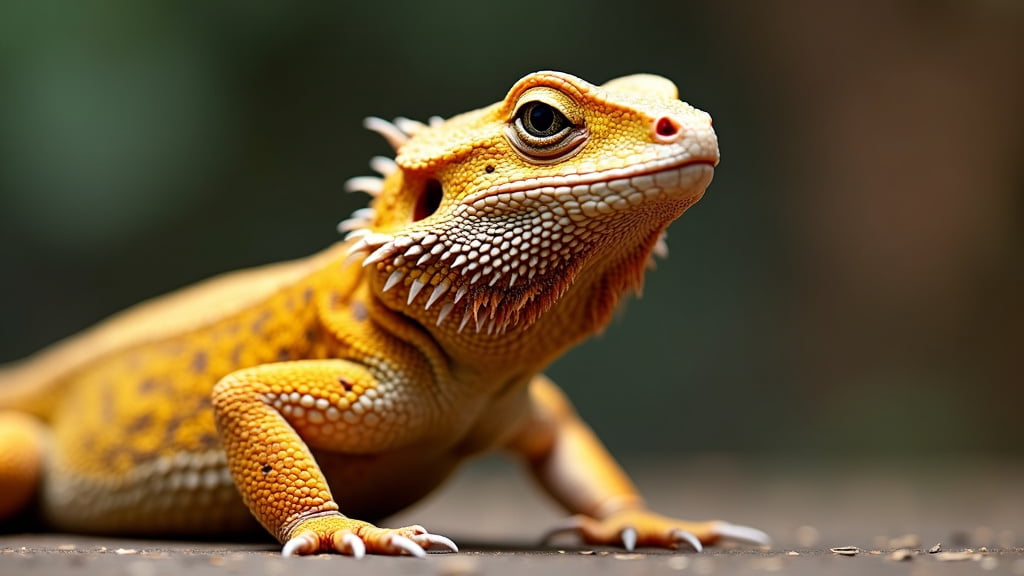Have you ever wondered how your cherished bearded dragon’s diet could affect their lifespan? These fascinating reptiles, known for their easy-going nature, can live anywhere from 6 to 15 years in captivity. However, achieving the higher end of this spectrum relies heavily on proper nutrition. In this blog post, we’ll explore the significant role diet plays in extending your bearded dragon’s life.
The Basics of a Bearded Dragon’s Diet
Primary Focus: Variety is Key
It’s no secret that a well-balanced diet can do wonders for any animal, and bearded dragons are no exception. A diverse diet supports many aspects of their health, from their immune system to their energy levels.
Insects and Protein Sources
- Staple Insects: Crickets and dubia roaches offer excellent protein sources and are typically well-liked by bearded dragons.
- Occasional Treats: Worms, such as mealworms or superworms, can be given but should not form the bulk of their diet due to high fat content.
Vegetables and Fruits
- Leafy Greens: Kale, collard greens, and mustard greens provide essential vitamins and minerals.
- Fruits in Moderation: Fruits like apples and blueberries can be given as treats but sparingly due to their high sugar content.
Nutritional Balance for a Longer Lifespan
The Importance of Calcium and Vitamin D3
Ensuring that your bearded dragon receives adequate calcium and Vitamin D3 is crucial. These nutrients play an essential role in preventing metabolic bone disease, a common ailment among beardies.
- Calcium Supplement: Dust live insects and vegetables with a calcium supplement.
- Proper UVB Lighting: Provide appropriate UVB lighting to aid in Vitamin D3 synthesis, which in turn helps absorb calcium.
Common Dietary Pitfalls and How to Avoid Them
Overfeeding and Obesity Risk
Overeating can lead to obesity, which drastically reduces lifespan. Understanding portion control and recognising signs of obesity are critical.
Avoiding Toxic Foods
Certain foods can be harmful to your bearded dragon. Avoid feeding them:
- Avocados
- Rhubarb
- Lettuce (contains little nutritional value)
Hydration Matters
While bearded dragons primarily stay hydrated through their food intake, always ensure a fresh water dish is available. Misting their food can provide additional moisture, especially in dry environments.
Practical Feeding Tips from Personal Experience
Over the years, I’ve had the pleasure of caring for several bearded dragons, each with unique dietary preferences. Here are a few tips and tricks I’ve learned along the way:
Rotational Feeding
- Rotation Schedule: By rotating insects and vegetables daily, you can ensure a balanced intake of nutrients. For instance, Monday can be cricket day, while Tuesday can be dedicated to leafy greens.
Observation and Adjustments
- Observe Eating Behaviour: Each bearded dragon may have different tastes and nutritional needs. Adjust the diet if you notice avoidance of certain foods.
Seek Professional Guidance
- Veterinary Check-ups: Regular visits to a reptile vet can provide tailored advice and ensure that your bearded dragon remains in optimal health.
Conclusion
In conclusion, the impact of diet on a bearded dragon’s lifespan cannot be overstated. A varied, balanced diet rich in essential nutrients, along with proper hydration and occasional vet visits, can significantly enhance the longevity and quality of life for your bearded dragon. Remember, every meal is an opportunity to contribute to their well-being.
For further reading, check out my guide on essential bearded dragon care tips and an external resource on common bearded dragon diet myths.
Meta Description
Discover how a balanced diet impacts your bearded dragon’s lifespan. Learn practical tips for ensuring your bearded dragon enjoys a long, healthy life through proper nutrition.
By implementing these dietary guidelines, you’re not just feeding your bearded dragon; you’re nourishing their chances for a longer, healthier life.

